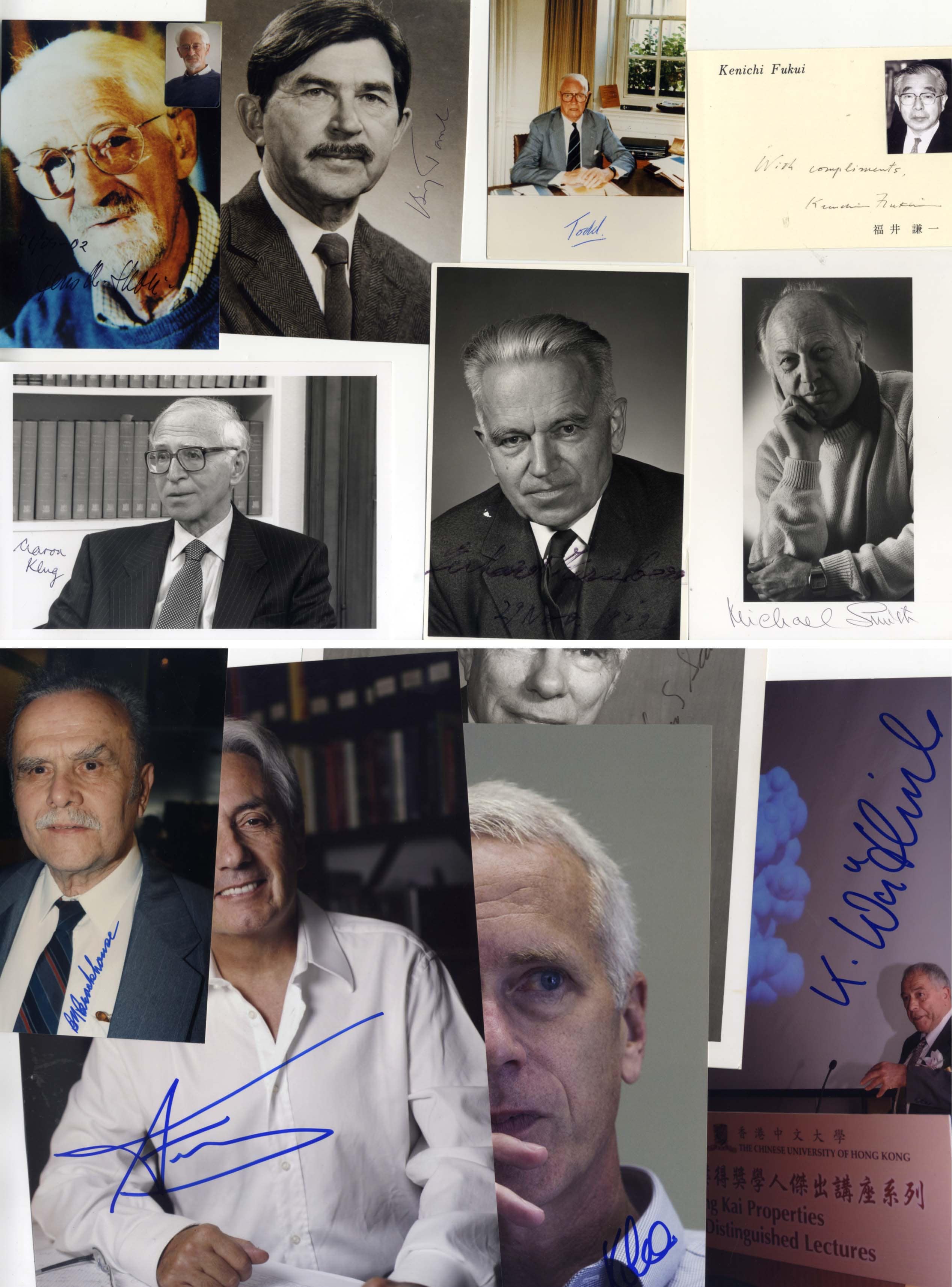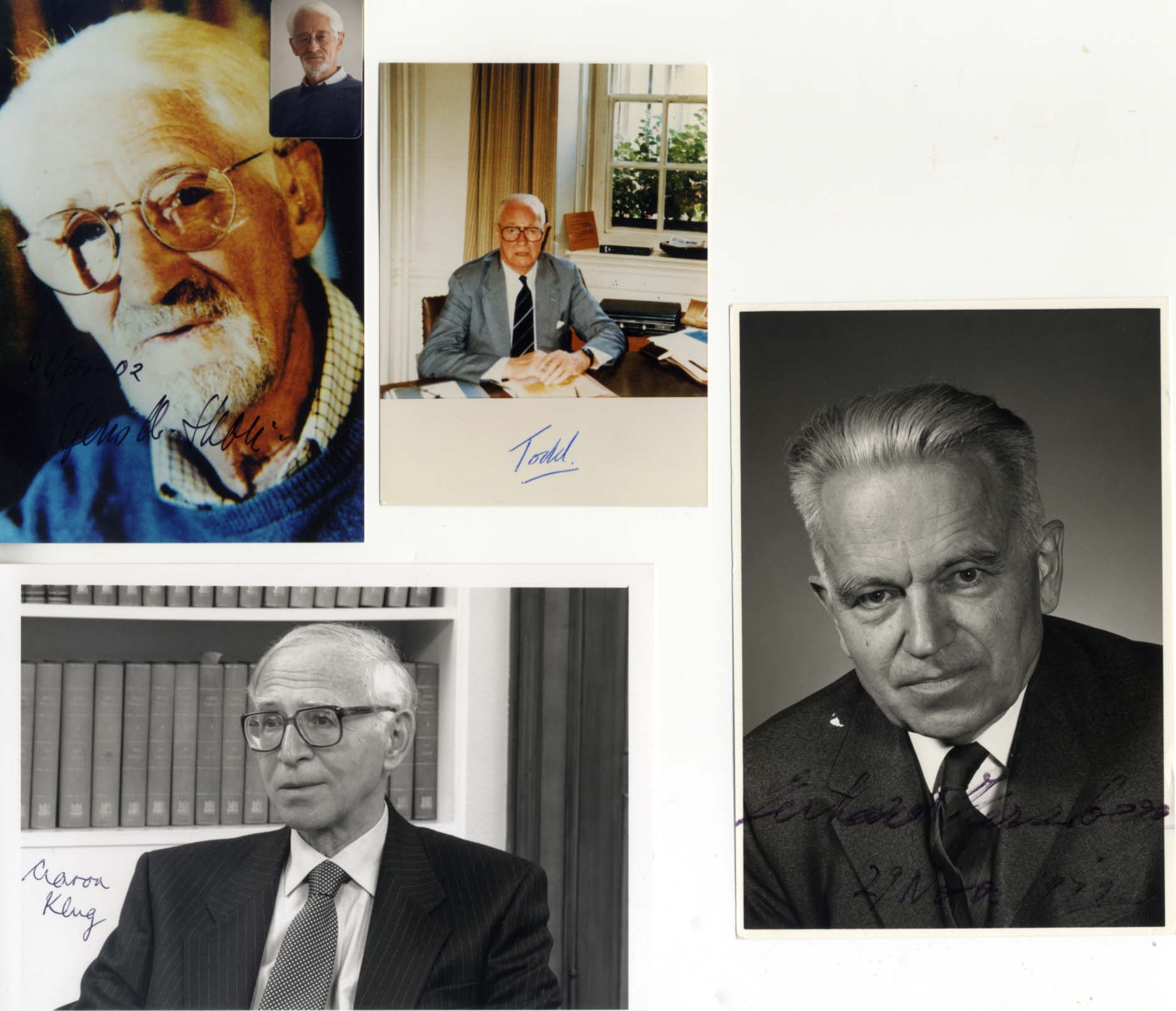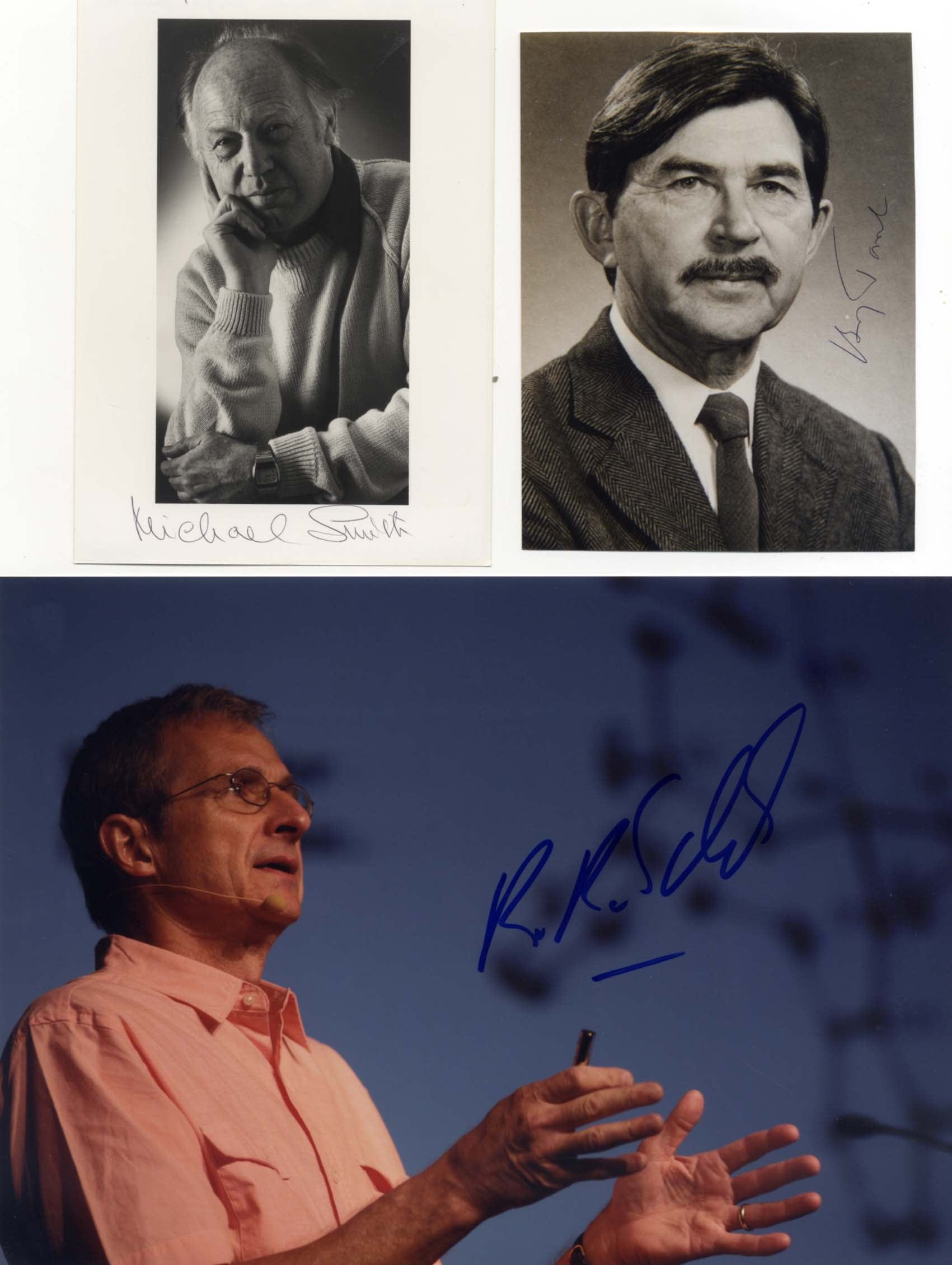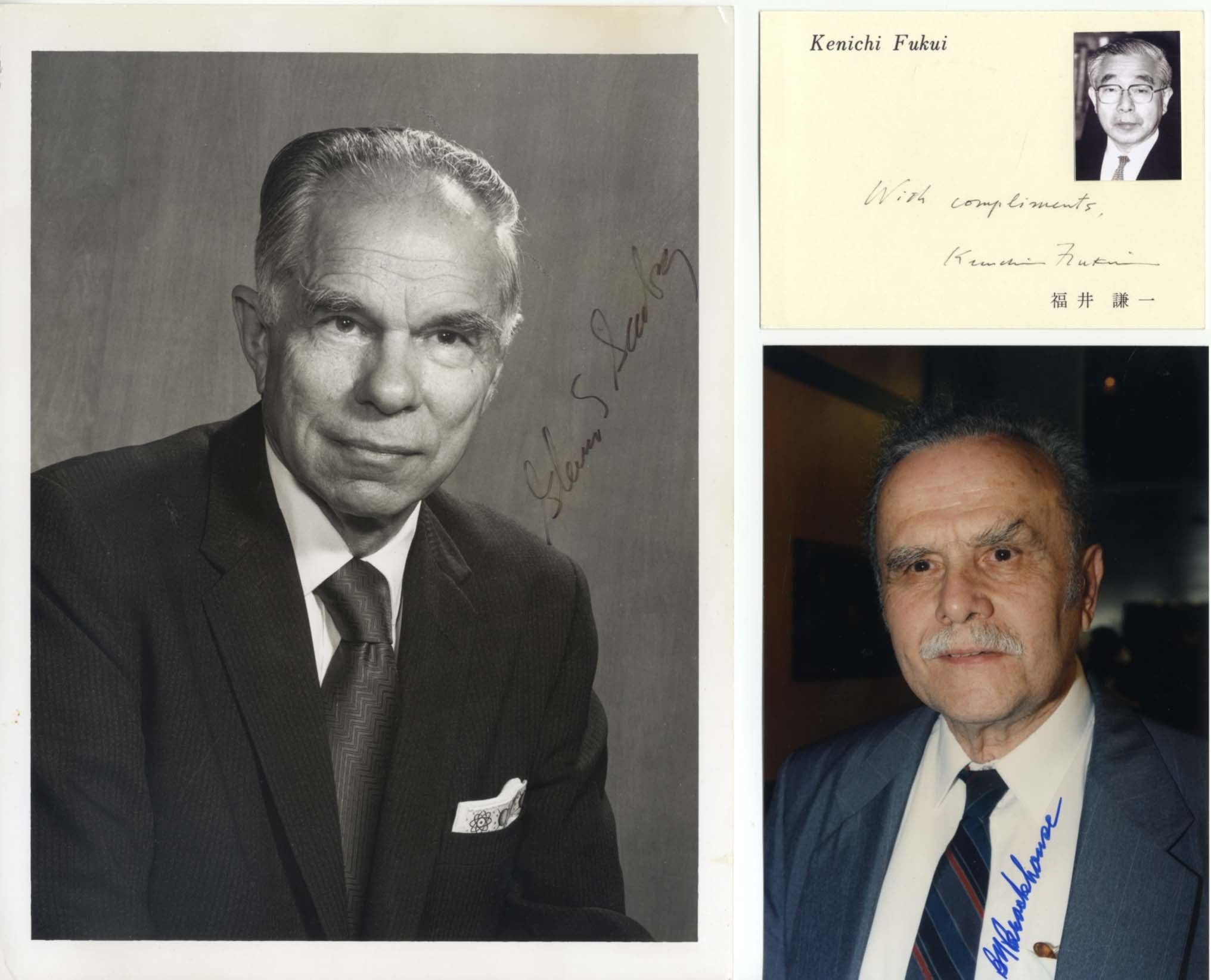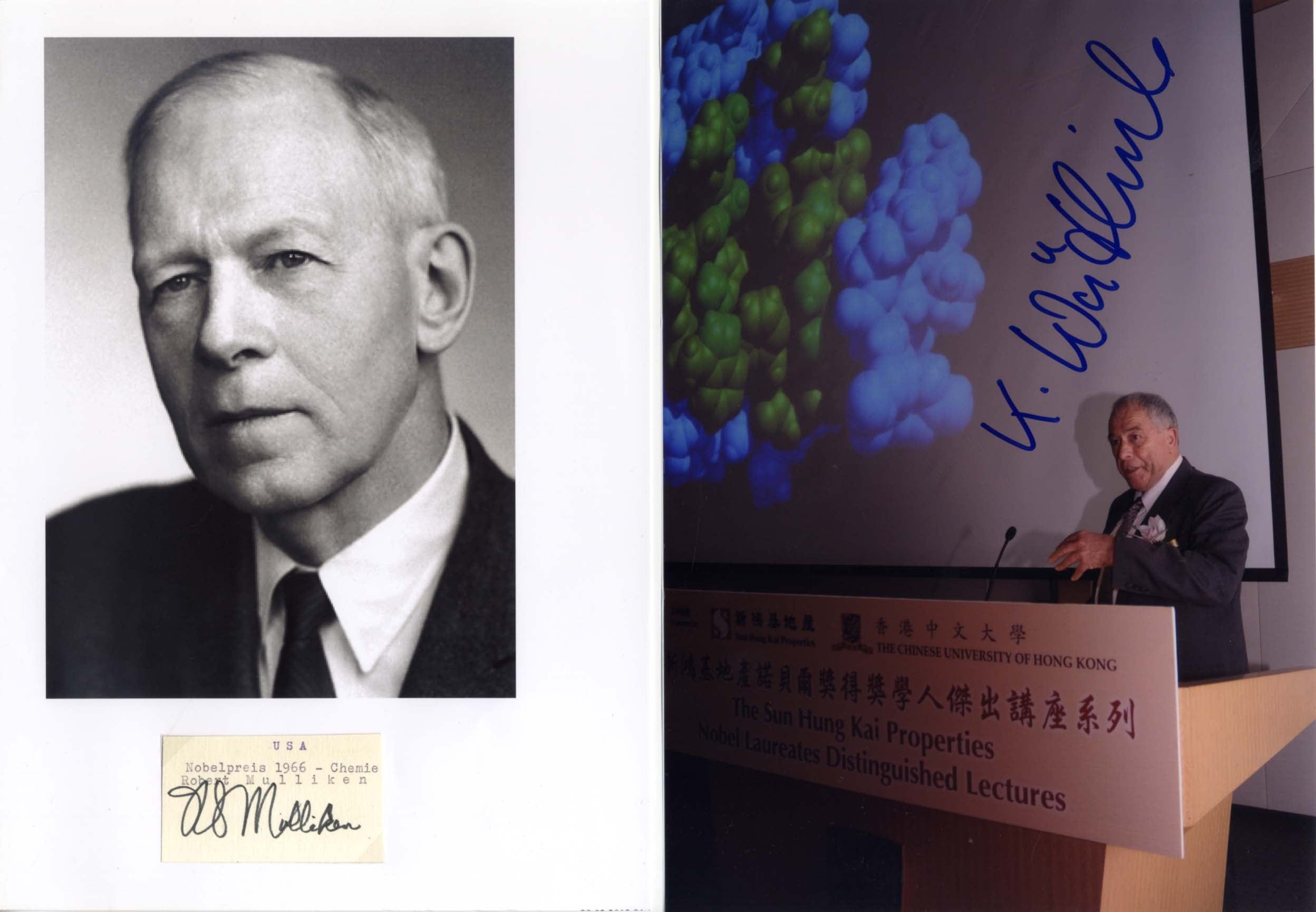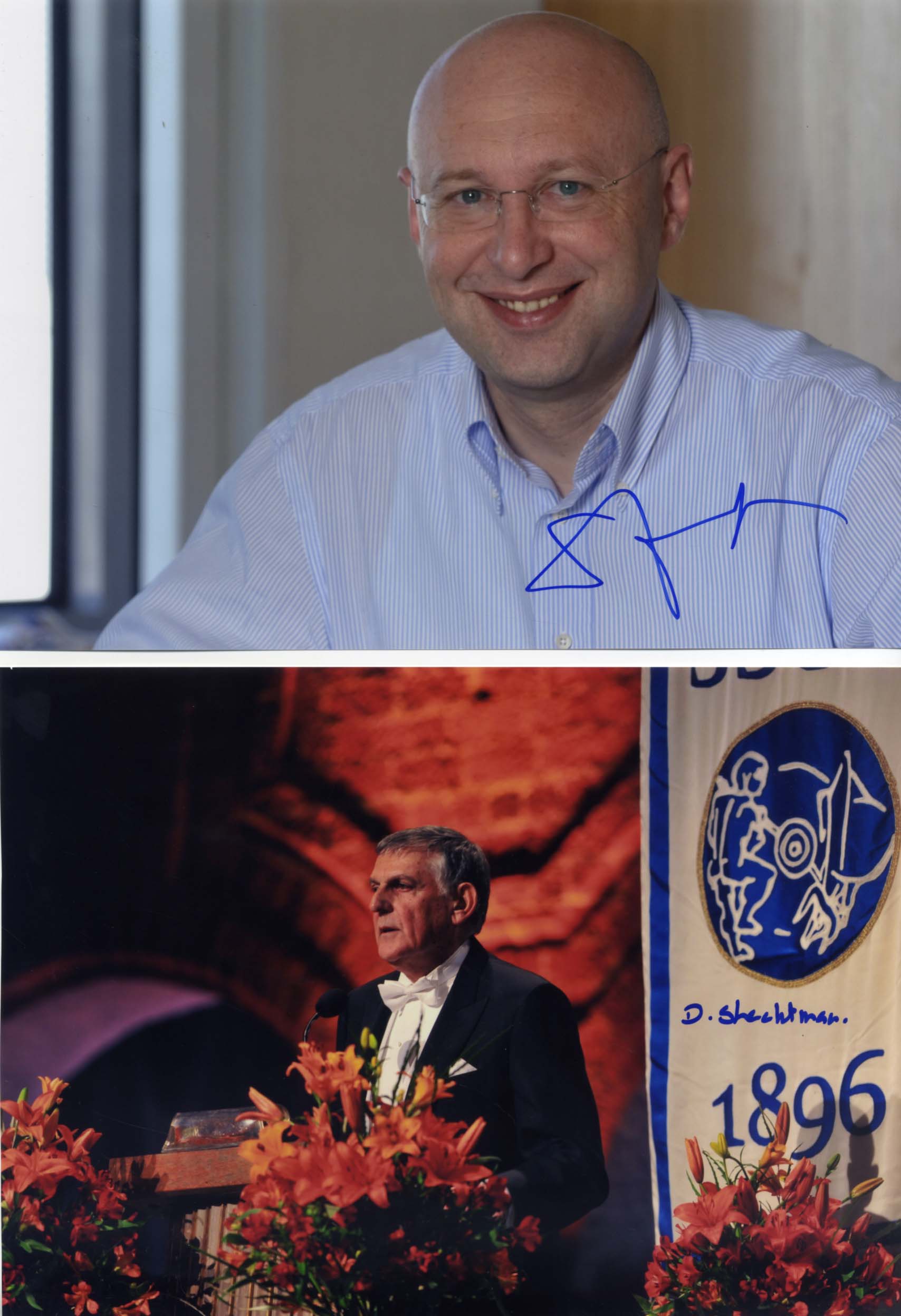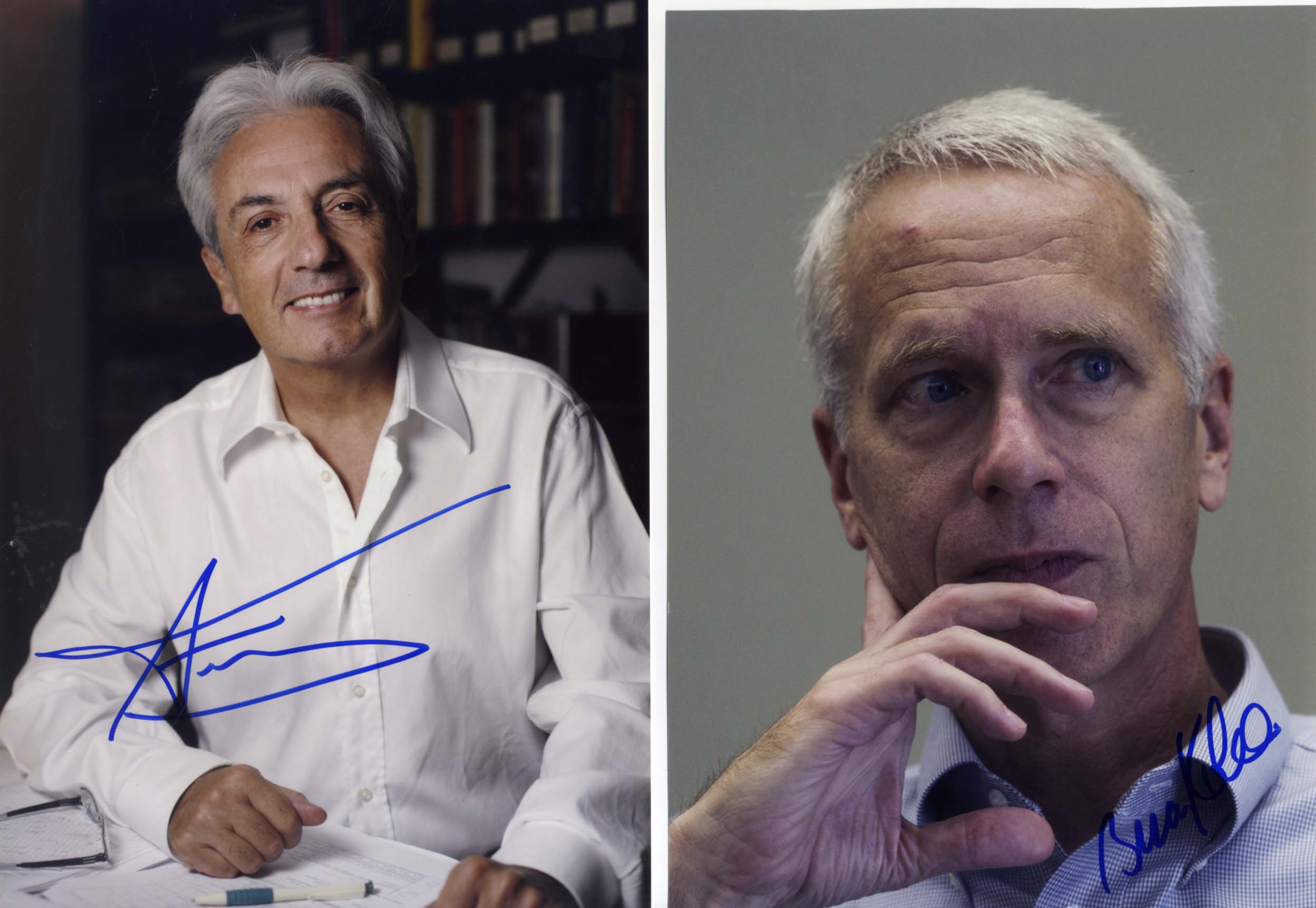Description
17 signatures (mostly photographs) of chemists Bertram Brockhouse, Albert Fert, Stefan Hell, Gerhard Herzberg, Brian Kobilka, Marcus Mulliken, Dan Shechtman, Glenn Seaborg, Richard R. Schrock, Jens Christian Skou, Alexander Todd, Kurt Wüthrich, Kenichi Fukui, Aaron Klug, Michael Smith, Henry Taube, and John Cornforth, different sizes, mostly signed in blue or black felt tip, partly with mild signs of wear - overall in fine to very fine condition.
Further Information on the person
Profession:
Chemists
Certificate of authenticity
All of our pieces are sold with a Certificate of Authenticity. If a piece turns out to be wrong or if you do not like an autograph, you will get your money back for a lifetime.
Payment & Security
Your payment information is processed securely. We do not store credit card details nor have access to your credit card information.

